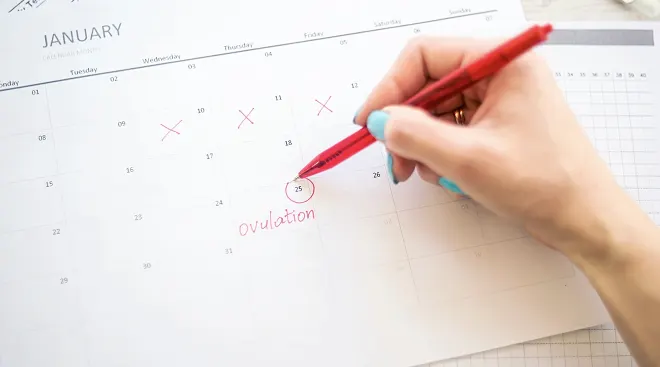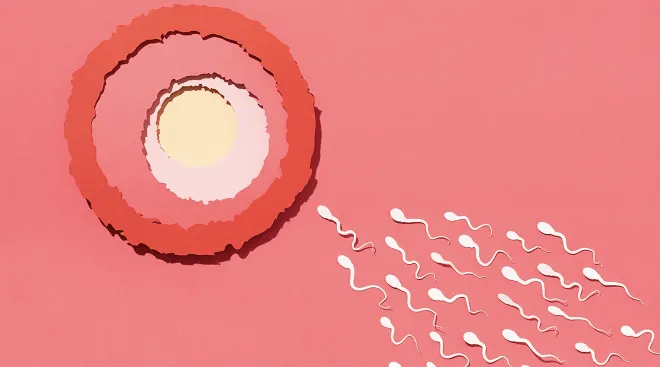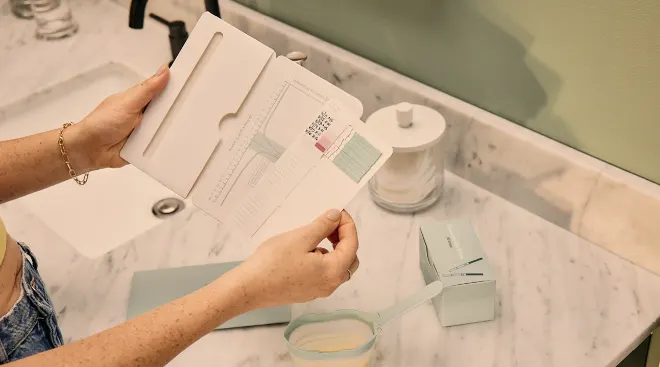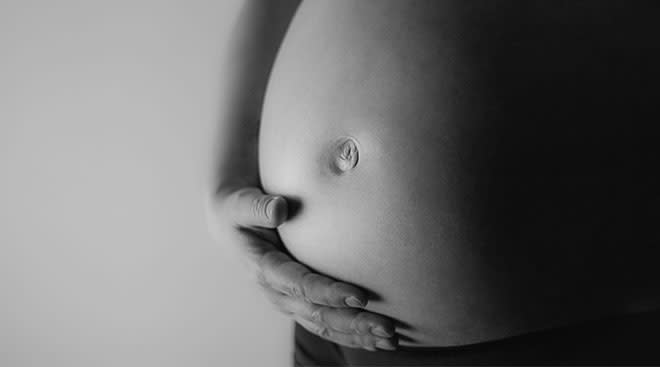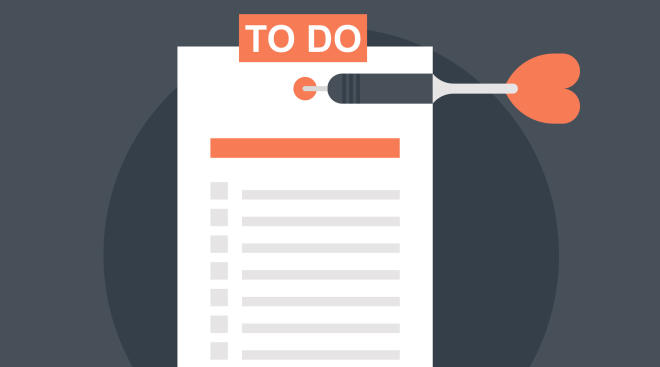10 Things to Avoid When Trying to Get Pregnant
Preparing for pregnancy can be fun and exciting—but waiting for those two little pink lines can also cause a considerable amount of anxiety. While everybody’s different and focusing on your individual experience is key, there are a few tips that can potentially help you conceive faster and start your baby journey off on a healthier note. In addition to important to-dos—like taking your prenatal vitamins and tracking your cycle—it’s important to know what to avoid when trying to get pregnant. We consulted fertility specialists to find out what should be off your plate while trying to conceive.
While this may seem like a no-brainer when it comes to things to avoid when trying to get pregnant, experts say that both women and men should drink in moderation—or opt out of happy hour altogether—while trying to conceive.
Research suggests that drinking more than two drinks a day could decrease a woman’s fertility and increase the time it takes her to conceive. Drinking affects men’s fertility, too. “Excessive alcohol consumption can lower sperm counts, lower testosterone and can disrupt the reproductive hormone balance,” says James Nodler, MD, a reproductive endocrinology and infertility specialist at CCRM Fertility’s Houston clinic. “Fertility specialists recommend consuming less than four to six glasses of wine (or equivalent) a week.”
It’s also important to avoid smoking and using other drugs. “Smoking, vaping and marijuana can damage both egg quality and quantity—the same is true for sperm health in men,” says Alex Robles, MD, a reproductive endocrinologist at Columbia University Fertility Center. “The toxins in cigarette smoke also increase the risk of miscarriage and birth defects.”
Nodler also notes that a meta-analysis of 20 studies with 5,865 men found that smoking tobacco reduces sperm count and motility (aka how the sperm swims). “If you smoke and are trying to conceive, it’s time to kick the habit,” he says.
While a cup of morning joe can be blissful, you might want to reevaluate the amount of caffeine you eat and drink when trying to get pregnant. Molly Quinn, MD, FACOG, a reproductive endocrinologist and infertility specialist at HRC Fertility’s Pasadena, California, location, says having a cup of coffee or tea a day is totally okay when trying to conceive (and during pregnancy). But it’s a good idea to steer clear of having over 200 milligrams of caffeine a day, as that could potentially affect your fertility. That said, the evidence regarding the link between caffeine and fertility is mixed, and it’s best to consult with your doctor.
When it comes to specific teas to avoid while trying to conceive, there’s not enough research on the subject. According to the American Pregnancy Association, during pregnancy most commercial herbal teas are safe to drink in reasonable amounts. But again, it’s important to consult with your doctor to find out what’s best for you.
Are there foods to avoid when trying to get pregnant? Yes and no. While you can go ahead and have your fries every once in a while, fast food is associated with taking longer to conceive—so eat it in moderation. “Consuming a diet rich in fruits, vegetables, whole grains, lean proteins, healthy fats and high in antioxidants can help support improved fertility,” says Nodler.
Lyndsey Harper, MD, FACOG, an ob-gyn, clinical assistant professor at the Texas A&M School of Medicine and founder and CEO of Rosy, says your grocery-shopping approach can help. “The best way to get the vitamins, minerals, fats, proteins and other nutrients your body needs to support a healthy immune system and pregnancy is through a colorful and fresh diet,” she says. “Shop on the perimeter of the grocery store and avoid highly processed foods as much as possible.”
Doctors advise against dieting or restricting calories while trying to conceive. “You need at least the recommended amount of calories to maintain your body weight while trying to conceive in order to optimize your fertility,” says Harper. Experts recommend eating an average of 2,000 calories a day to maintain a healthy weight. As always, talk to your provider to figure out your individualized plan.
It’s important to stay active while trying to get pregnant, but research links vigorous, high-intensity workouts with taking longer to conceive. “Overdoing high-intensity workouts can disrupt the hormones necessary for egg production and ovulation in women,” says Robles. Definitely stick to your Pilates or gym routine if you have one, but know that your body can read too much exercise as a stressor. “It’s a great idea to continue regular daily aerobic exercise and strength-training leading into and during pregnancy,” says Quinn. “However, excessive exercise may reduce chances for pregnancy success by altering the menstrual cycle or making ovulation infrequent.”
On the flip side, Quinn says, “a sedentary lifestyle may also impact the likelihood of pregnancy and increase the chances of pregnancy-related complications once pregnant.” She suggests aiming for at least 30 minutes of moderate to vigorous exercise most days of the week, which is in line with the American Heart Association’s recommendation of 150 minutes a week.
When it comes to men, Nodler says some studies show that regular physical activity can increase testosterone levels and improve sperm quality. “However, excessive exercise may have a negative impact, so strike a balance,” he advises.
While many of life’s little stressors are inevitable (hello traffic, bills, deadlines, the list goes on), Robles explains that too much stress can release hormones like cortisol. “Cortisol is known to interfere with the reproductive axis and fertility,” he says.
Trying to avoid stressful situations—and managing how you react to them—can be helpful when you’re trying to get pregnant. “Easier said than done, but do what you can to bring down your stress levels, including avoiding toxic situations and people, practicing mindfulness and tapping into things that bring you joy,” says Harper.
This goes hand-in-hand with managing your stress levels: Getting an adequate amount of sleep on the regular can play an important role in your pregnancy journey. “Sleep is extremely important for all of our body functions, including fertility,” says Harper. Research shows possible links between sleep disturbance and infertility.
Endocrine-disrupting chemicals (EDCs) “have been linked with reproductive development disorders, ovarian dysfunction, subfertility and polycystic ovarian syndrome (PCOS) in women," according to research.
Bisphenol-A (BPA), one of the most common EDCs, has been associated “with ovarian cysts, uterine polyps, vaginal adenosis and impaired implantation in in-vitro fertilization (IVF) patients.” Swapping out plastics you use around the house, such as food containers, with BPA-free plastic, glass or stainless steel is a smart move.
Nodler also recommends reducing exposure to environmental toxins and chemicals that can harm sperm, such as pesticides, heavy metals and certain workplace chemicals. “Be sure to wear protective gear and follow safety guidelines if you work in a potentially hazardous environment,” he says.
It’s important to consult with your doctor about what medications to avoid while trying to conceive, advises Quinn. Common ones doctors tell you to avoid are skin-care ingredients like retinol and Accutane, as well as GLP-1 agonists for diabetes and weight loss. There are also supplements to avoid when trying to conceive: Make sure to review these with your doctor.
“It’s a great idea to have a preconception visit with your ob-gyn to review your medications and see if any need to be changed or discontinued,” says Harper.
While it’s obviously important to make sex as easy and comfortable as possible during this time, there are certain lubricants you should avoid when trying to get pregnant. Water-based lubricants may “decrease sperm motility or survival and should be avoided,” says Quinn. Luckily, oil-based lubricants seem to have little impact on sperm’s success.
It’s helpful to take note of all the things you need to avoid when trying to get pregnant and practice a healthy lifestyle while you’re trying to expand your family, but it’s also important to give yourself grace. After all, there will be more than enough favorites (Like sushi! Ugh.) you’ll be told to avoid during pregnancy. You can’t be perfect 100 percent of the time—so just do your best and use your common sense. Bonus: Having a kind-to-yourself mindset will also help keep your stress levels down—which just happens to be on the list of what to avoid when trying to get pregnant.
Please note: The Bump and the materials and information it contains are not intended to, and do not constitute, medical or other health advice or diagnosis and should not be used as such. You should always consult with a qualified physician or health professional about your specific circumstances.
Plus, more from The Bump:
Lyndsey Harper, MD, FACOG, is an ob-gyn, clinical assistant professor at the Texas A&M School of Medicine and founder and CEO of Rosy, a women’s health technology company.
James Nodler, MD, is a reproductive endocrinology and infertility specialist at CCRM Fertility's Houston clinic. He earned his medical degree from the Texas Tech University School of Medicine.
Molly Quinn, MD, FACOG, is a reproductive endocrinology and infertility specialist at HRC Fertility’s Pasadena, California, location. She earned her medical degree from the University of California, Los Angeles School of Medicine.
Alex Robles, MD, is a reproductive endocrinology and infertility specialist at Columbia University Fertility Center. He earned his medical degree from Weill Cornell Medical College in New York City.
BMJ, Alcohol Consumption and Fecundability, August 2016
European Urology, Cigarette Smoking and Semen Quality: A New Meta-Analysis Examining the Effect of the 2010 World Health Organization Laboratory Methods for the Examination of Human Semen, October 2016
Mayo Clinic, Female Fertility: Why Lifestyle Choices Count, December 2022
BMC Women’s Health, Relationship Between Caffeine Intake and Infertility: A Systematic Review of Controlled Clinical Studies, June 2020
American Pregnancy Association, Herbal Tea and Pregnancy
Human Reproduction, Pre-Pregnancy Fast Food and Fruit Intake Is Associated with Time to Pregnancy, June 2018
StatPearls, Calories, September 2022
Fertility and Sterility, A Prospective Cohort Study of Physical Activity and Time to Pregnancy, May 2012
American Heart Association, American Heart Association Recommendations for Physical Activity in Adults and Kids, April 2018
Andrologia, Influence of Physical Activity on Male Fertility, April 2022
Oman Medical Journal, The Impact of Lifestyle, Diet, and Psychological Stress on Female Fertility, June 2017
Sleep Medicine Reviews, Sleep, Sleep Disturbance and Fertility in Women, August 2015
StatPearls, Environmental Toxins and Infertility, June 2023
Endotext, Endocrine Disruptor Chemicals, March 2021
Mount Sinai, Vitamin A (Retinol)
U.S. Food and Drug Administration, Accutane, January 2010
JCI Insight, Maternal Antagonism of GLP1 Reverses the Adverse Outcomes of Sleeve Gastrectomy on Mouse Offspring, April 2022
Learn how we ensure the accuracy of our content through our editorial and medical review process.
Navigate forward to interact with the calendar and select a date. Press the question mark key to get the keyboard shortcuts for changing dates.

































